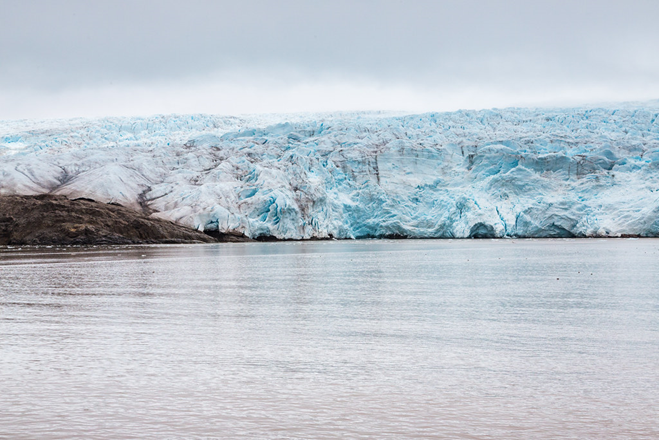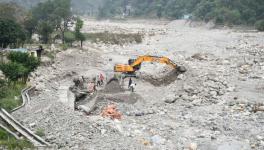Arctic Warming Much Faster Than Thought Earlier

Image Source: Flickr.com
It has been widely accepted in climate research that the Arctic is warming faster than the rest of the world. In fact, till now climate science has believed that the Arctic is warming twice faster than the rest. This estimate has been established in scientific studies, advocacy reports and also in the IPCC (Inter-Governmental Panel on Climate Change) assessment report of 2021. But, what has been thought for long may be an underestimate. A team of climate scientists reported this week that in fact the Arctic is warming four times faster than the rest of the world and the previous estimate has obscured the judgement of the true toll of global warming on the Arctic.
The new estimate has been stated on December 13 at the American Geophysical Union. Commenting on it, Peter Jacobs, a climate scientist at the Goddard Space Flight Center of NASA was quoted to have said— “Everybody knows [the Arctic] is a canary when it comes to climate change. Yet we’re misreporting it by a factor of two. Which is just bananas.”
The faster rate of warming at the top north point of Earth pertains to a phenomenon known as ‘Arctic Amplification’. This amplification is driven by several factors including increased solar heating, intrusion of tropical heat which is carried to the pole by ‘atmospheric rivers’ as well as narrow and dense cloud’s movement to the pole which carries water vapour.
According to the researchers, the underestimation has a couple of reasons. This includes the common practice of climate researchers to cut each hemisphere into three parts and in this process, usually, the area above 60-degree north is labelled as the Arctic. However, this area does not only denote the Arctic but instead includes most of Scandinavia. But in the real sense, the Arctic should be defined by Earth’s tilt.
The Arctic circle is the line that starts at 66.6 degrees north. When this is distorted and researchers take the lower latitudes, then the real assessment becomes obscure. Jacobs warned about this and said— “When researchers lump in the lower latitudes, you’re diluting the amount of Arctic warming you’re getting. That is not a trivial thing.”
The other aspect that has contributed to the underestimation of the Arctic warming rate is the time period taken for which warming is calculated. Jacobs and his colleagues had focused on the past 30 years during which period a linear warming trend has emerged in the Arctic. Analysis which are based on taking longer period trends would find less difference of warming between the Arctic and the rest of the world.
Explaining it Mark England, a climate scientist of the University of California said—“That’s because, before 1990, the Arctic’s temperatures fluctuated, and even cooled for decades because of air pollution, including light-blocking sulfate aerosols that swept in from the northern midlatitudes. As the world moves off fossil fuels and curbs pollution, this scenario is not going to repeat itself again.”
Mark England was not involved in the latest study and commented that—“Overall, the researchers make a valuable point, England says. I’m one of the people guilty of using the 60-degree mark. I guess a large number of people are.”
“One open question is how much of the fast Arctic warming comes from human-driven climate change versus natural variability. Some of the Arctic temperature rise could be due to multi-decadal temperature swings in the Atlantic Ocean in the 20th century, which some scientists believe are driven by the ocean’s intrinsic variability. Even so, introducing this rigour in terms of 66° is a welcome development and I’ll certainly be doing that going forward.”
The Arctic warming at an ever-faster rate is concerning for the future of the planet. We have already witnessed permafrost declining which has impacted indigenous villages, vanishing of summer sea ice, water washing down Greenland’s ice sheets at a record amount.
Get the latest reports & analysis with people's perspective on Protests, movements & deep analytical videos, discussions of the current affairs in your Telegram app. Subscribe to NewsClick's Telegram channel & get Real-Time updates on stories, as they get published on our website.
























